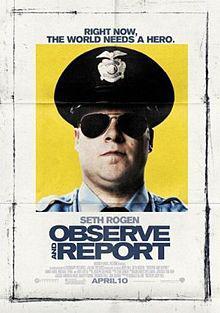 While reading a blog post from Jay Markanich, a home inspector I've gotten to know and respect over the years, I discovered an interesting difference between home inspection Standards of Practice (SOP) - specifically, between the ASHI and InterNACHI SOP.
While reading a blog post from Jay Markanich, a home inspector I've gotten to know and respect over the years, I discovered an interesting difference between home inspection Standards of Practice (SOP) - specifically, between the ASHI and InterNACHI SOP.
Jay was writing about finding what appeared to be mold growing on the trusses throughout an attic in a new construction house. Jay was careful not to diagnose the material as 'mold', which I have no problem with, but in his post he says that his job is "To observe and report." I've heard that phrase repeated by home inspectors many times, and I take issue with that phrase. We do a lot more than observe and report.
Observe?
If a home inspector's job were only to observe...
Home inspectors wouldn't remove electrical panel covers.
Home inspectors wouldn't test outlets.
Home inspectors wouldn't open attic access panels.
Home inspectors wouldn't walk on roofs.
Home inspectors wouldn't carry around any tools other than a flashlight. Maybe a tape measure.
We'd just be a bunch of dummies with clipboards.
Report?
If a home inspector's job were only to report...
Home inspectors wouldn't include photos in their reports.
Home inspectors wouldn't need any special training, knowledge, or experience.
Home inspectors wouldn't make any kind of recommendations in their reports - why would they?
I'm pretty sure I could teach anyone with an 8th grade education to 'observe and report' in about a hour. Anyone with a basic understanding of homes and some home inspection software can observe and report.
Maybe this is just an ASHI vs. InterNACHI thing.
I meant to call Jay up and tell him that home inspectors are actually required by our Standards of Practice to do a lot more than just observe and report. Here's an excerpt from the ASHI SOP - I added the bold.
2.2 Inspectors shall:
- adhere to the Code of Ethics of the American Society of Home Inspectors.
- inspect readily accessible, visually observable, installed systems and components listed in these Standards of Practice.
- report :
- those systems and components inspected that, in the professional judgment of the inspector, are not functioning properly, significantly deficient, unsafe, or are near the end of their service lives.
- recommendations to correct, or monitor for future correction, the deficiencies reported in 2.2.C.1, or items needing further evaluation. (Per Exclusion 13.2.A.5 inspectors are NOT required to determine methods, materials, or costs of corrections.)
- reasoning or explanation as to the nature of the deficiencies reported in 2.2.C.1, that are not self-evident.
This basically says that when a home inspector finds a problem, they need to report the problem, report why it's a problem, and make a recommendation. There was an article on this topic in the latest issue of the ASHI Reporter, wherein Bruce Barker explains these three things as "Identify, Explain, and Advise".
Back to my story... so anyways, I meant to call Jay up and give him much crap for saying that home inspectors just "observe and report", but then I remembered that he's not an ASHI guy. He's an InterNACHI guy. InterNACHI has their own standards of practice, which their inspectors are required to "substantially follow". I looked up the InterNACHI SOP so I could quote Jay the right section of SOP, but as it turns out, all he was required to do was observe and report. The InterNACHI standards of practice only require the inspector to report problems - they don't require explanations or recommendations. Here's an excerpt:
1.3. A general home inspection report shall identify, in written format, defects within specific systems and components defined by these Standards that are both observed and deemed material by the inspector. Inspection reports may include additional comments and recommendations.Interesting. I try to avoid any ASHI vs. InterNACHI discussions, but this is one major difference that I've never noticed before. I don't mean to imply that an ASHI inspector will write a better report than an InterNACHI member, but their Standards of Practice certainly demand a higher minimum. If you were hiring a home inspector, wouldn't you expect them to explain problems and tell you what to do?The bottom line is that before you hire a home inspector, take a look at his or her sample inspection report to make sure you're hiring the right person for the job. Reading sample home inspection reports is one of the best ways to compare home inspectors.I still called Jay up and gave him a hard time about the whole 'observe and report' thing, but I had no book to throw at him.

